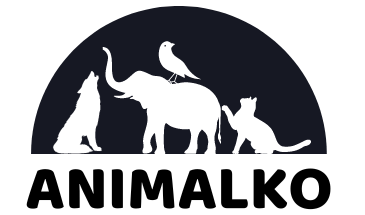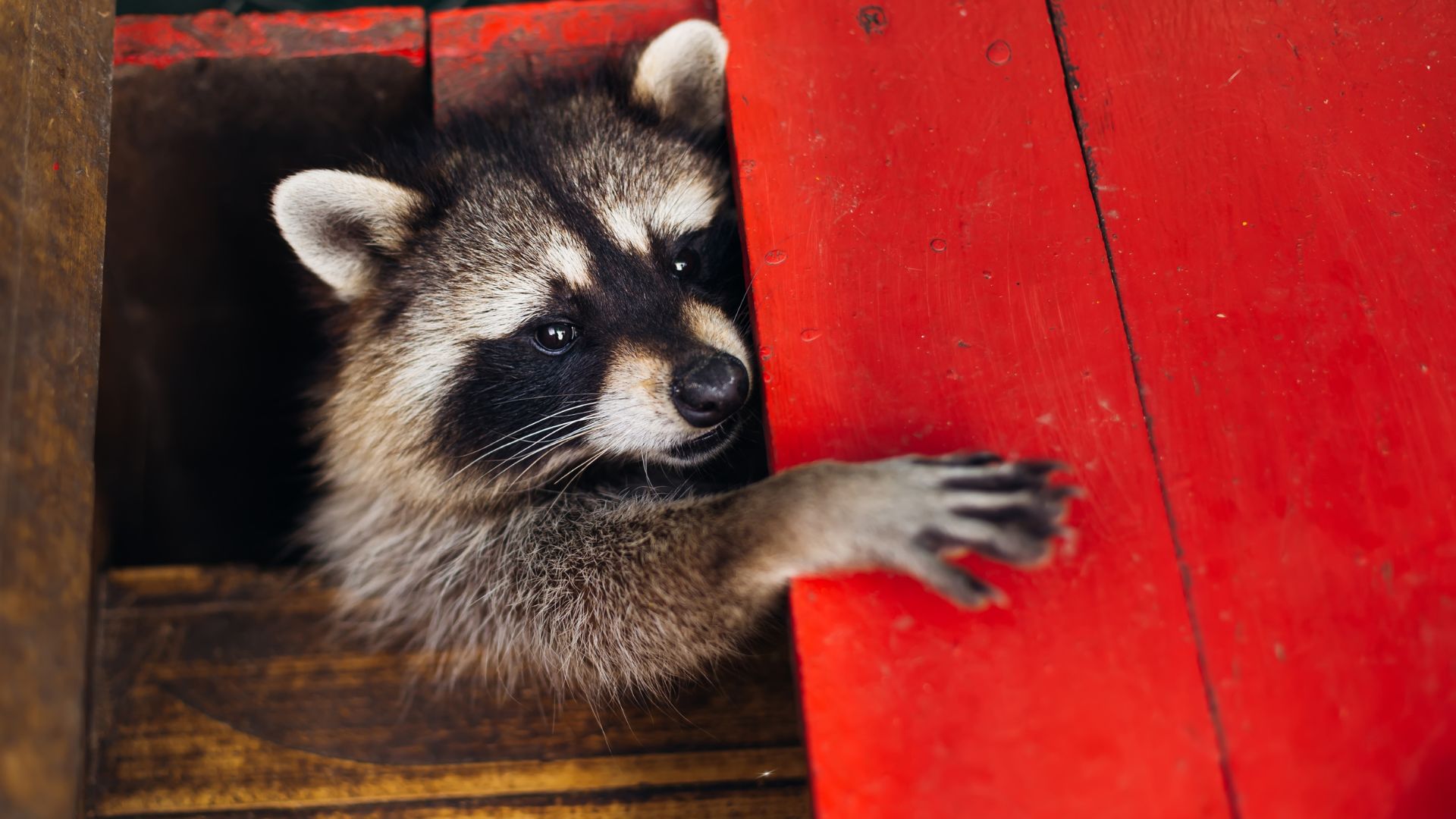Raccoons, with their curious nature and nimble paws, are known to create havoc in gardens, trash bins, and even attics. These clever critters are not just a nuisance but can also pose health risks to humans and pets. Fortunately, nature offers some fascinating allies that can help keep raccoons at bay.
From domesticated pets to wild predators, several animals can effectively deter raccoons from your property.
This article explores such animals, offering insights into how they can protect your space. Read on to discover which natural guardians can assist in safeguarding your home and garden from these persistent intruders.
1. Dogs

Dogs are one of the most popular and effective deterrents against raccoons. Their natural instincts to protect their territory make them excellent guardians of your property. Most breeds will bark or chase any unfamiliar creature that ventures too close, effectively scaring off raccoons. Even the mere scent of a dog can be enough to make a raccoon think twice before entering a yard.
Having a dog as a deterrent not only protects against raccoons but also fosters a sense of companionship and security for the homeowners. It’s important to ensure the dog is well-trained and comfortable in its environment to maximize its ability to deter raccoons.
Choosing a breed known for its protective nature, like a Doberman or German Shepherd, can enhance the effectiveness, but even smaller breeds can play a role in raccoon control. With the right training and environment, dogs can be a valuable part of your strategy to keep raccoons away.
However, always consider the safety of your pets by ensuring they are up-to-date with vaccinations and have a safe space to retreat in case of a confrontation with a raccoon.
2. Coyotes
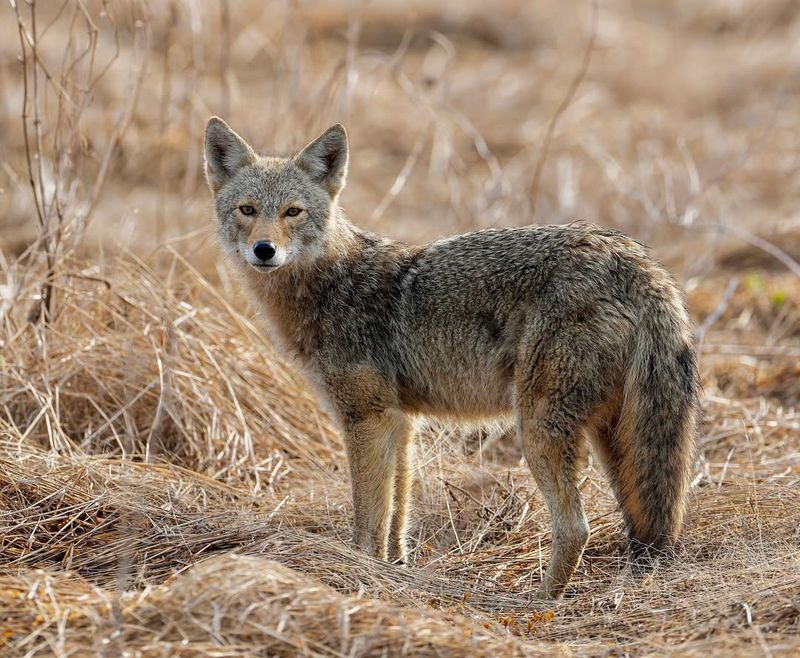
Coyotes are natural predators of raccoons and can be a potent deterrent. While they are more common in rural and semi-urban areas, their presence can significantly reduce raccoon populations. Coyotes hunt raccoons not just for food but also to defend their territory, making them effective guardians of local ecosystems.
Their howls and territorial markings can scare off raccoons, signaling that an apex predator is nearby. This natural fear can keep raccoons from venturing into areas where coyotes are active. Property owners may notice fewer raccoons over time if coyotes are part of the local wildlife.
However, introducing or encouraging coyotes is not always practical or safe in urban settings. They pose their own set of challenges, including potential threats to pets and small livestock. It’s essential to balance the benefits and risks when considering coyotes as a raccoon deterrent.
For those living near natural habitats where coyotes already roam, understanding their behaviors and respecting their space can indirectly contribute to keeping raccoons and similar pests at bay.
3. Foxes
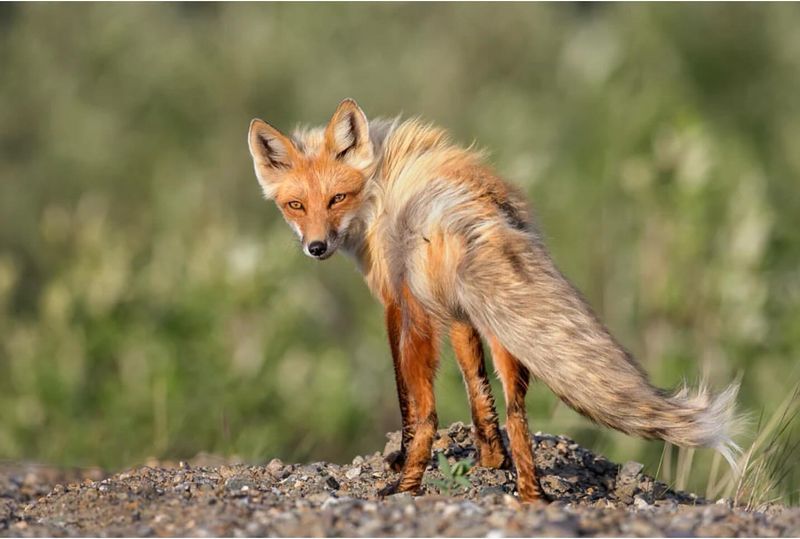
With their keen senses and agile movements, foxes are formidable predators that can help control raccoon populations. Their presence in suburban and rural areas often goes unnoticed, but they play a crucial role in maintaining the ecological balance. Foxes are territorial creatures that will not hesitate to chase off intruders like raccoons.
The fox’s sharp hearing and stealthy nature make it an excellent hunter, and its diet includes various small mammals, which can indirectly help control raccoons by reducing food sources. Although foxes typically avoid human interaction, their natural instincts make them effective in deterring raccoons.
Homeowners in areas with a significant fox population may find that raccoons are less of a nuisance. Encouraging a habitat that supports foxes, such as maintaining natural vegetation and minimizing human disturbance, can enhance their presence.
While foxes are beneficial, it’s crucial to ensure they do not become too comfortable around humans to prevent potential conflicts. Educating the community about the benefits of foxes can help foster a harmonious coexistence.
4. Bobcats
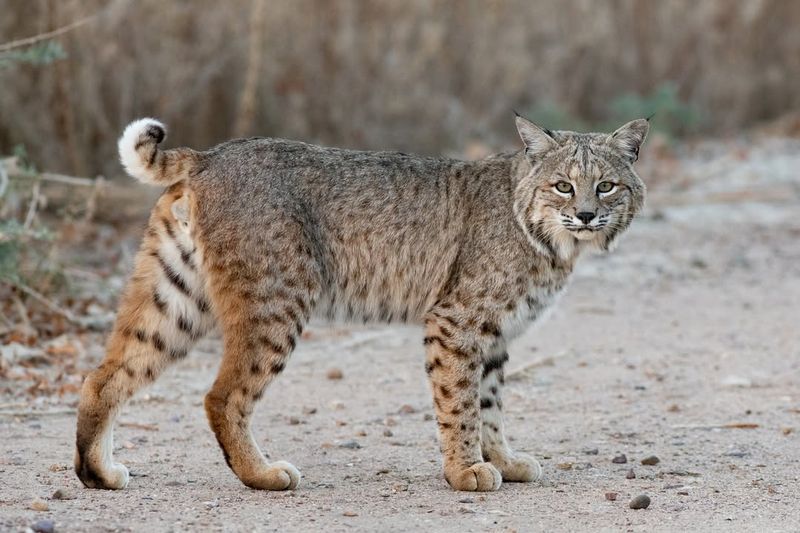
These solitary and elusive predators naturally control raccoon populations in the wild. These medium-sized cats are incredibly agile and possess powerful hunting skills, making them a natural adversary to raccoons. Their stealth and strength allow bobcats to hunt effectively, and they are known to take on animals larger than themselves.
The presence of bobcats in an area can significantly deter raccoons, as these predators are adept at ambushing and overpowering them. This natural predation helps maintain ecological balance and reduces raccoon populations naturally.
Bobcats are not typically a concern for humans, as they prefer to avoid interaction. However, they play a critical role in controlling small to mid-sized mammal populations, including raccoons. Property owners in regions with bobcats can benefit from their presence by experiencing fewer raccoon-related issues.
It’s essential to respect bobcat habitats and avoid actions that may disrupt their natural behaviors. By maintaining natural landscapes and minimizing human interference, bobcats can thrive and continue to serve as effective raccoon deterrents.
5. Hawks
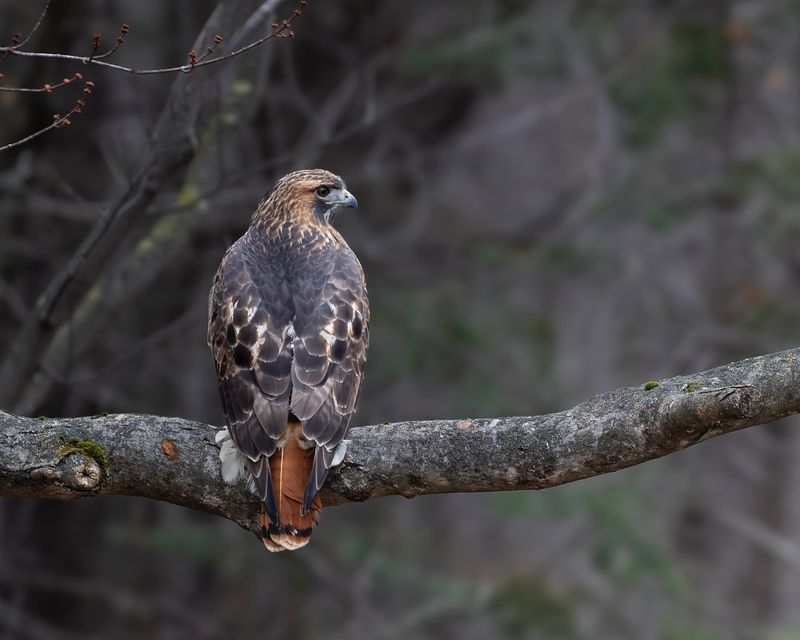
Hawks are powerful birds of prey that play a significant role in managing small animal populations, including raccoons. While they primarily hunt smaller creatures, their presence is enough to create an environment where raccoons feel threatened. Hawks’ keen eyesight and swift flight capabilities make them formidable hunters, often catching prey with precision.
A property frequented by hawks will naturally have fewer raccoon problems, as these birds help control the population of rodents and other small animals that raccoons would typically prey on. This reduction in food sources makes areas less attractive to raccoons, thus deterring them from entering the vicinity.
Encouraging an environment conducive to hawks involves maintaining open spaces and tall trees for perching. By fostering such habitats, homeowners can benefit from these natural predators’ presence while enjoying the natural beauty they bring.
While hawks are beneficial, they pose no direct threat to raccoons due to size differences. However, their indirect influence on the ecosystem can make a notable difference in managing raccoon presence on one’s property.
6. Owls
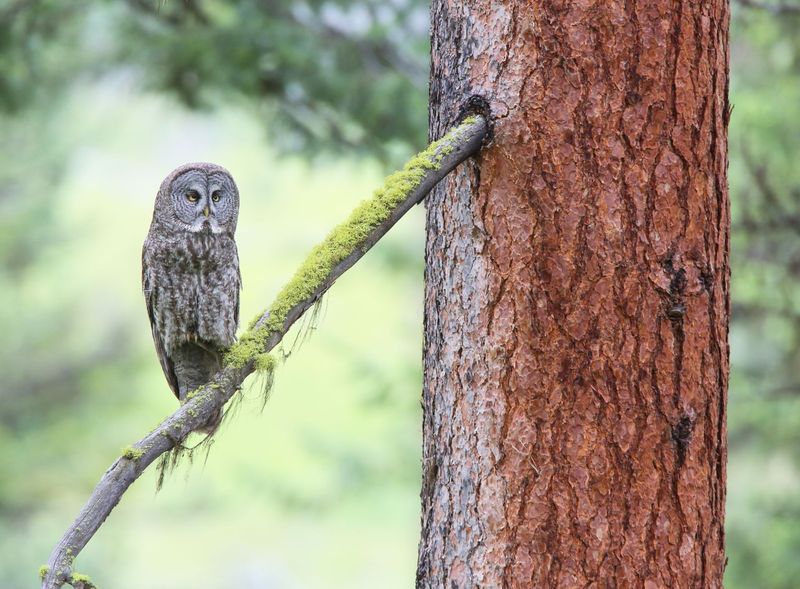
Owls, particularly the larger species, are effective nocturnal predators that can deter raccoons from your property. Their silent flight and exceptional night vision allow them to hunt efficiently when raccoons are most active. Owls typically prey on smaller mammals, but their presence can indirectly affect raccoon behavior.
The territorial nature of owls can make raccoons wary of venturing into areas known to host these birds of prey. By reducing the population of smaller animals that raccoons feed on, owls limit the food resources available, discouraging raccoons from lingering.
Property owners can encourage owls by installing owl boxes and maintaining wooded areas. These actions create an inviting environment for owls to nest and hunt, naturally contributing to raccoon deterrence.
While owls themselves are not a direct threat to raccoons due to their size, their impact on the ecosystem helps create a balance that keeps raccoon populations in check. This makes them a valuable ally in maintaining a raccoon-free property.
7. Snakes
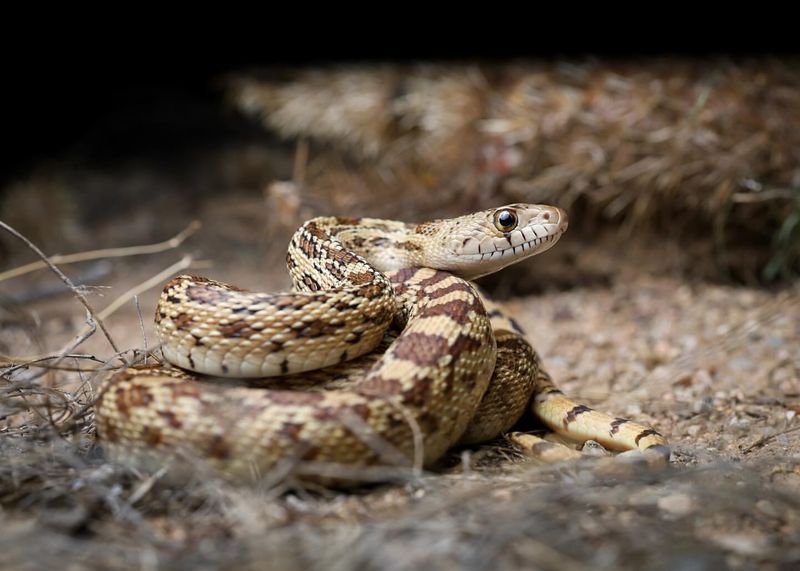
Sadly, snakes are often misunderstood and feared, but can actually play a crucial role in deterring raccoons from your property. While raccoons are not typically prey for snakes, the presence of these reptiles can discourage raccoons due to the competition for similar food sources such as rodents and insects.
Non-venomous snakes, such as rat snakes, contribute significantly to controlling pest populations, indirectly affecting raccoon behavior. By keeping rodent numbers low, snakes reduce the availability of food for raccoons, making your property less appealing to these nocturnal foragers.
Encouraging snakes can involve maintaining natural landscapes with rocks and logs, providing hiding spots and basking areas. Understanding and appreciating the role of snakes in your garden’s ecosystem can foster a harmonious environment, benefiting both the natural inhabitants and your property.
While many fear the presence of snakes, educating oneself about the local species can alleviate concerns and highlight the benefits they bring in managing raccoon populations.
8. Mountain Lions
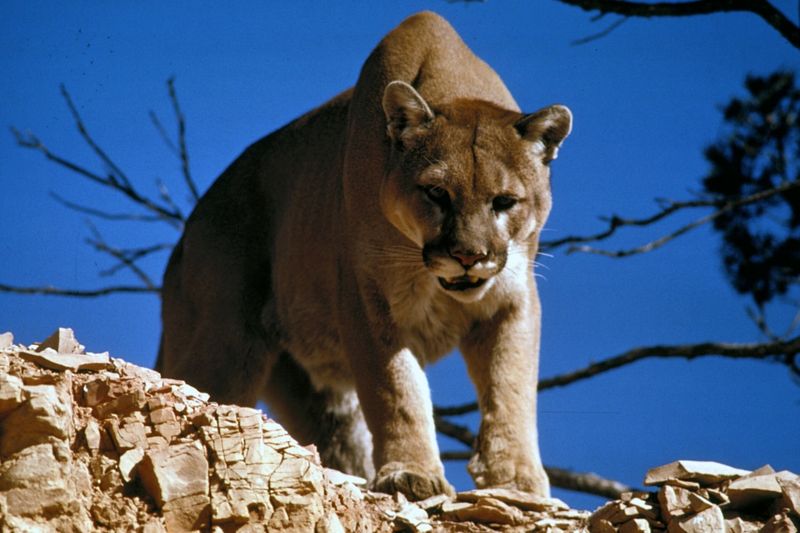
Mountain lions, also known as cougars, are apex predators with territories that often overlap with raccoon habitats. Their presence alone is enough to deter raccoons, as these big cats pose a significant threat to them. Mountain lions contribute to controlling raccoon populations by preying on them when opportunities arise.
The mere scent of a mountain lion is often enough to keep raccoons at bay, as these predators mark their territory with urine and scratch marks that raccoons can detect. This natural fear response helps maintain ecological balance by reducing raccoon numbers in areas where mountain lions roam.
However, the presence of mountain lions can pose challenges for human populations, especially in suburban areas. It’s crucial to take precautions to protect pets and livestock if mountain lions are nearby. Understanding their behavior and respecting their space can mitigate potential conflicts while benefiting from their natural role in controlling raccoon populations.
For those living in regions where mountain lions are native, cohabitation strategies can be developed to ensure safety and ecological benefits.
9. Weasels
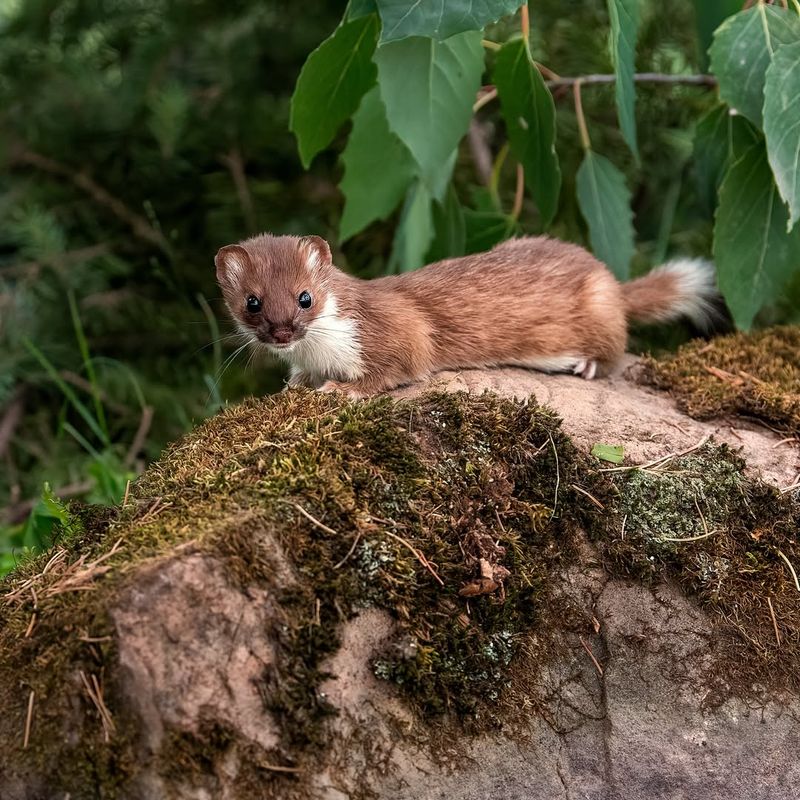
Weasels, though small, are fierce predators known for their agility and hunting prowess. Their ability to control rodent populations can indirectly affect raccoon presence by limiting available food sources. Weasels’ quick movements and bold nature make them effective hunters, even against animals larger than themselves on occasion.
These small mammals are often underestimated but play a vital role in maintaining ecological balance. Their hunting habits keep the numbers of rodents and small mammals in check, indirectly influencing raccoon behavior. In areas where weasels thrive, raccoons may find fewer reasons to linger, reducing the risk of property damage.
To encourage weasels, property owners can maintain natural environments with dense vegetation and plenty of cover. Avoiding the use of rodenticides and maintaining a healthy ecosystem can support weasel populations, leading to natural pest control benefits.
Understanding and appreciating the role of weasels in your local ecosystem can enhance your property’s natural defenses against raccoons.
10. Lynxes
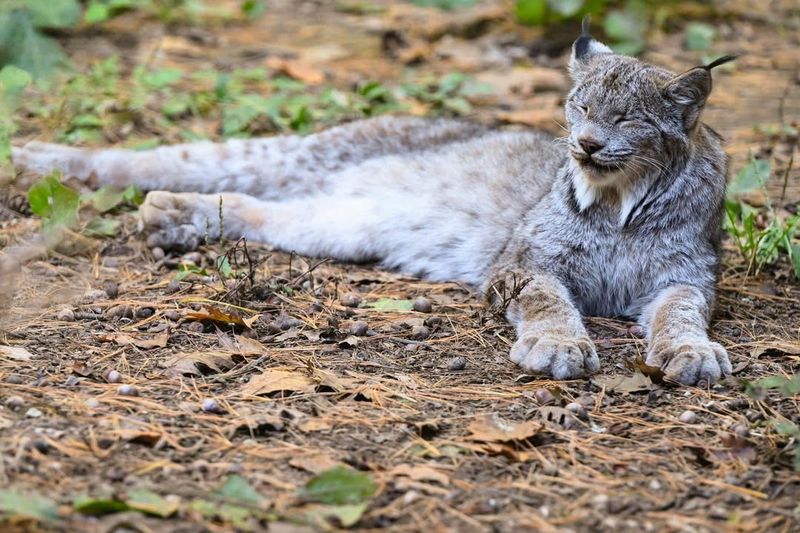
Lynxes are solitary and skilled hunters known for their ability to adapt to various environments. These medium-sized wild cats are capable of deterring raccoons due to their predatory nature and territorial behaviors.
Lynxes’ diet includes small to medium-sized mammals, which can overlap with raccoons on occasion.The presence of lynxes in an area can naturally reduce raccoon numbers, as they compete for similar food sources.
This competition, along with the lynx’s hunting instincts, makes them effective in managing raccoon populations in the wild.Lynxes are elusive and tend to avoid human activity, making them less of a concern for direct interaction with people. However, their role in the ecosystem is essential for
